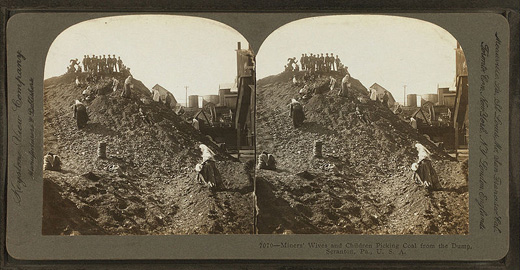
On Sept. 11, 1897, thousands of coal miners in Pennsylvania, Ohio, Illinois, Indiana and West Virginia ended a 10-week strike after winning an eight-hour day, semi-monthly pay, and abolition of company stores, where workers were forced to shop at exorbitant prices.
The strike was called for July 4, 1897, by the United Mine Workers of America, which had been formed just seven years earlier. At the time the union had less than 10,000 members, but 150,000 miners went out on strike, infuriated by the horrible conditions they faced.
“The causes which led up to the strike were various; but at bottom it was due to one – the constant reduction in wages through several years, which had brought the miners and their families to the verge of starvation,” wrote historian J. E. George.
Mother Jones and Eugene Debs were among the famous labor org
As a result of the strike the United Mine Workers became the nation’s largest trade union, with over 100,000 members. The bituminous (soft) coal operators in Pennsylvania, Ohio, Indiana, and Illinois recognized the UMWA as the representative of the miners and their bargaining agent.
The plight of coal miners and the notorious company store was immortalized by coal miner’s son Merle Travis in his famous song “16 Tons.”

MOST POPULAR TODAY

High Court essentially bans demonstrations, freedom of assembly in Deep South

UN warns that Israel is still blocking humanitarian aid to Gaza

Resource wars rage in eastern Congo, but U.S. capitalism only sees investment opportunity

U.S. imperialism’s ‘ironclad’ support for Israel increases fascist danger at home







Comments